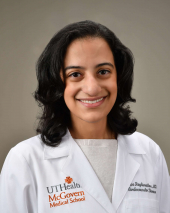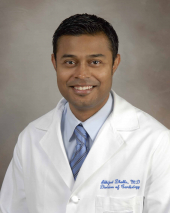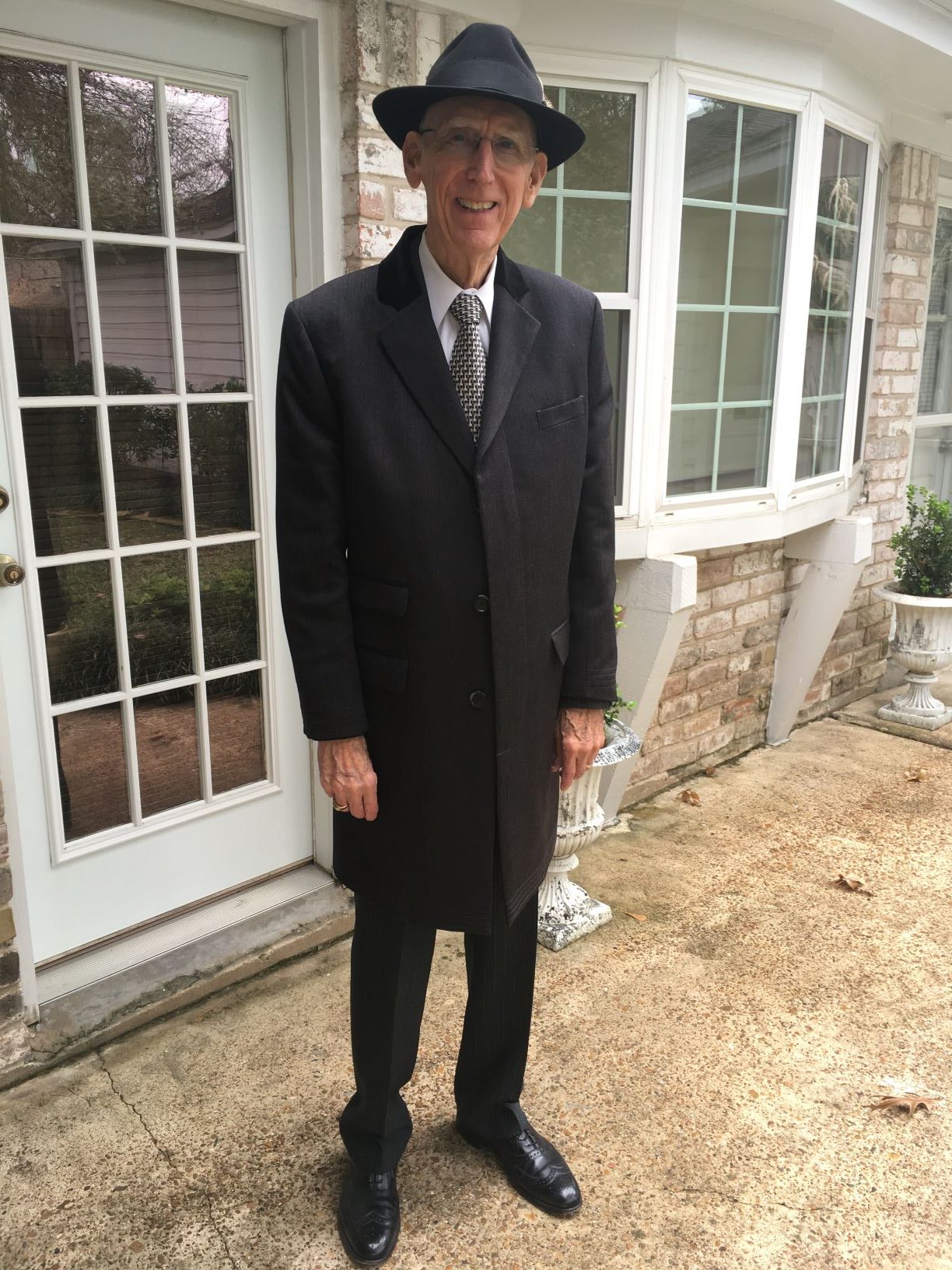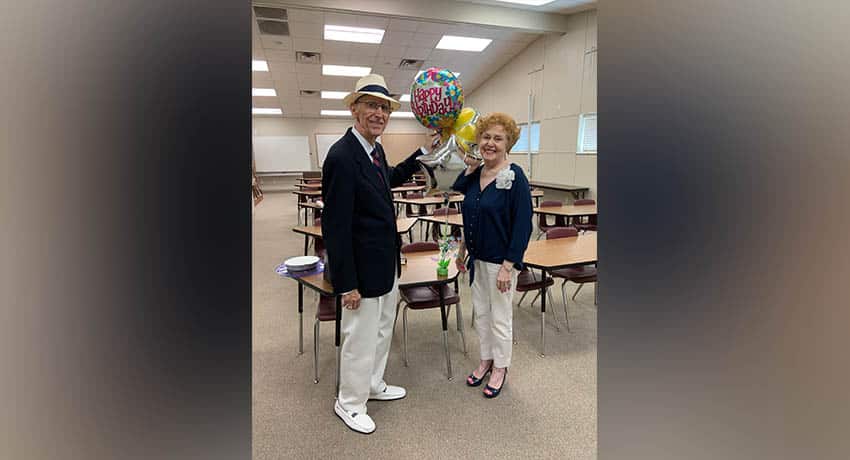Quite often, Roy Farmer was tired. Jokingly, his wife would say, “If you let him, he’d sleep for 12 hours.” For the busy 80-year-old pastor, fatigue was a normal part of his fulfilling life. It wasn’t until his cardiologist ran a routine test, discovering leaks in two of his heart valves, that he fully understood the cause of his low energy.
Seeking out care
Farmer’s situation required specialists equipped to handle his situation. Both his mitral and tricuspid valves were leaking at an alarming rate. It was then that his cardiologist referred him to experts at UT Physicians.
While cardiac intervention was definitely in his future, what kind was unclear at first. For a better idea of his situation and the severity of his valve disease, transesophageal echocardiography (TEE) imaging was performed by cardiologists Enrique D. Garcia-Sayan, MD, and Deepa Raghunathan, MD.
“TEE imaging helps us to study the heart prior to advanced interventions, like surgery or transcatheter interventions,” said Garcia-Sayan, who is also an assistant professor in the Department of Internal Medicine at McGovern Medical School at UTHealth. “This procedure allows an ultrasound probe to pass through a patient’s esophagus and collect clear images of the heart and its valves, including a three-dimensional evaluation which is key to deciding suitability for interventions.”

Imaging confirmed Farmer was suffering from severe mitral and tricuspid regurgitation, meaning the valves were not closing properly and allowing blood to flow back into his heart. Common symptoms of this condition are swelling, fatigue, and feeling out of breath.
As with every patient undergoing heart surgery or intervention with UT Physicians, a multidisciplinary team of experts reviewed Farmer’s results to determine the best course of action. Their conclusion was to avoid open-heart surgery, which would carry a high risk due to his age and other factors, and repair the valves via a transcatheter device.
Surgeries
It was decided that each of Farmer’s valves would be repaired in separate procedures, starting with the mitral valve. Sometimes after repairing a mitral valve leak, the tricuspid valve will also improve without medical intervention.
The lead for these procedures was Abhijeet Dhoble, MD, interventional cardiologist.

“Mitral valve leaks occur in approximately 15% of patients of his age, but to have both a mitral and tricuspid leak at the same time is not as common,” said Dhoble, associate professor in the Department of Internal Medicine at McGovern Medical School. “That occurs in only 2%-3% of patients in that age range.”
For the first procedure in August of 2020, Dhoble, Garcia-Sayan, and other health care experts performed transcatheter mitral valve repair on Farmer though a minimally invasive approach. Two device clips were placed on the valve to stabilize it, as well as prevent further leakage, with excellent results.
With the device being placed via a catheter through his groin, Farmer only stayed one night in the hospital for observation.
After follow-ups with his care team, the hope of his tricuspid valve status improving was not becoming a reality. Farmer’s second procedure was scheduled for October of 2020. It would be part of a clinical trial, as transcatheter repair of a tricuspid valve is still undergoing long-term study. However, it’s performed similarly and the device is clipped as the mitral valve was done a few months prior.
Again, Farmer only spent one night in the hospital for observation and recovery. Dhoble says that’s the beauty of transcatheter therapy – patients are discharged from major cardiac intervention quickly and are able to recover faster without complication.
Recovery

Farmer’s recovery has been an easy process, with the help of cardiac rehab and follow-up appointments with Dhoble, Garcia-Sayan, and Raghunathan – which is always a happy get together.
“We’ve seen him since his surgery in October and he’s doing amazing and is now able to do much more than before,” said Dhoble. “Mr. Farmer and his wife are some of the nicest people you’ll ever come across and it’s been such a pleasant experience caring for them.”
Today, Farmer is back to his congregation and helping to meet their needs – guiding prayer meetings, bible classes, counseling, and leading Between Jobs Ministry, all virtually.
“God has given me the energy to do all of this because of the great job UT Physicians has done,” said Farmer. “The Lord put doctors and nurses here for us, and I think it’s great to seek them out if you are having health problems.”


